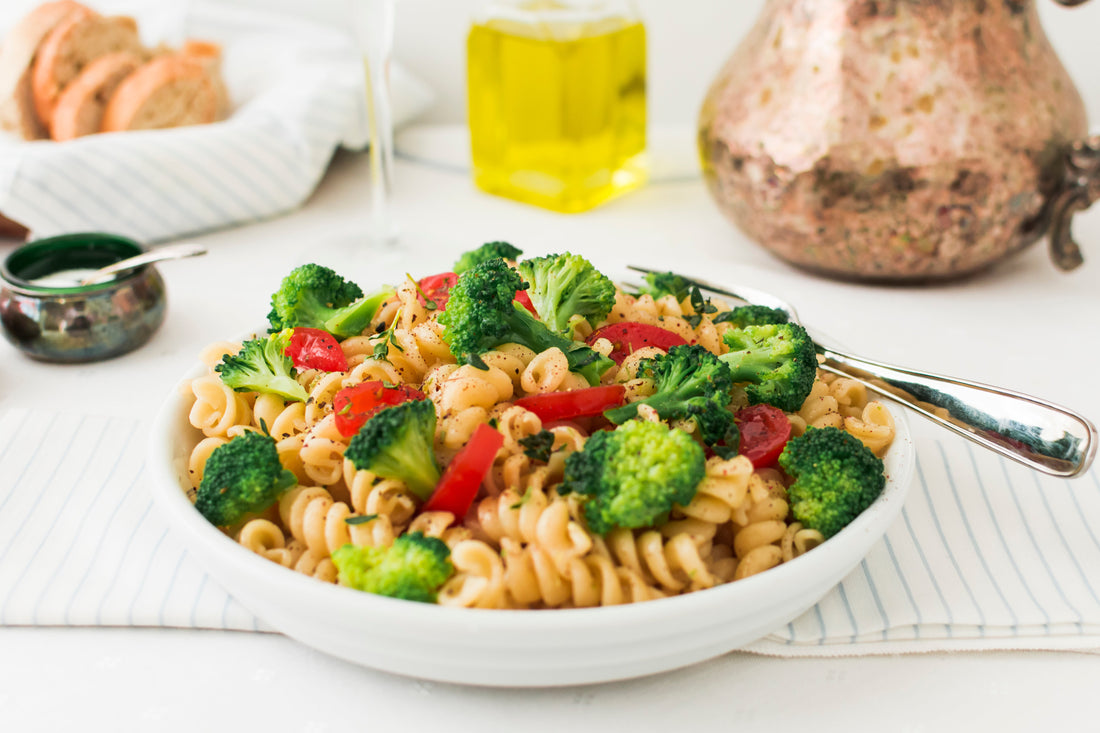The Mediterranean Diet is loved worldwide for its focus on fresh, whole foods and balanced meals. It comes from the traditional eating habits of countries like Italy, Greece, and Spain, and is known for supporting heart health, helping you live longer, and managing weight. One key part of this diet is pasta—not just because it tastes great, but because it’s an important and healthy part of the Mediterranean lifestyle. Here's why pasta plays such a big role in this way of eating.
Why Pasta?
Pasta is at the heart of Mediterranean meals—simple, delicious, and full of potential. It's an ingredient that brings people together and helps form the foundation of balanced, nutritious dishes. What makes it so central to the Mediterranean way of eating?
A Nutrient-Rich Base
Pasta, especially whole-grain varieties, provides essential nutrients like fiber, complex carbohydrates, and vitamins. Fiber helps regulate digestion, manage blood sugar, and keep you full longer, which supports overall health. Choosing whole-grain pasta over refined options boosts the nutritional value, making it a great choice for maintaining a healthy weight and preventing chronic diseases.
Versatility in Cooking
One of pasta’s greatest qualities is its versatility. It pairs perfectly with fresh, nutrient-dense Mediterranean ingredients such as tomatoes, garlic, olives, and vegetables. Whether you toss it with a simple tomato sauce, drizzle it with olive oil, or top it with seafood or legumes, pasta serves as a balanced, satisfying meal base. For instance, dishes like Fettuccine Cacio e Pepe, with just pasta, cheese, black pepper, and olive oil, offer flavor and simplicity in every bite.
Supports Heart Health
The Mediterranean Diet promotes heart health, and pasta plays a vital role here. When paired with heart-healthy olive oil, vegetables, and lean proteins, pasta becomes part of a diet that helps lower cholesterol and reduce the risk of cardiovascular diseases. Olive oil, rich in monounsaturated fats, is often used in pasta dishes, contributing to its anti-inflammatory properties and heart-healthy benefits.
Maintains Healthy Weight
While pasta is often considered a comfort food, in the Mediterranean Diet, it’s consumed in moderation and balanced with plenty of vegetables, healthy fats, and lean proteins. This approach helps prevent overeating, aids digestion, and contributes to weight management. The complex carbohydrates in pasta provide slow-releasing energy, keeping you full and energized throughout the day.
Cultural and Emotional Connection
Pasta holds deep cultural significance in Mediterranean countries. It’s more than just food; it’s a way of bringing people together, sharing meals, and enjoying time with loved ones. The Mediterranean Diet encourages mindful eating, appreciating the flavors, and savoring the experience, which enhances overall well-being. It’s about enjoying the meal, not just eating it.
Fresh, Local Ingredients
The Mediterranean Diet is all about fresh, seasonal ingredients. Pasta’s role is enhanced by pairing it with fresh produce and high-quality ingredients that are abundant in the region, like tomatoes, herbs, olives, and seafood. These fresh ingredients are full of nutrients and flavor, ensuring that every pasta dish is as healthy as it is delicious.

Gustora Foods: Your Mediterranean Pasta Partner
At Gustora Foods, we know that great pasta is essential to Mediterranean cooking. Since 1924, we've been making authentic, healthy pasta with the best ingredients to give you a true taste of the Mediterranean. Our traditional Italian pasta-making methods ensure that every meal with Gustora pasta is not just tasty, but also nourishing and good for you.
Next time you're ready to enjoy a meal, choose Gustora pasta and enjoy the heart-healthy, flavorful traditions of the Mediterranean. It’s pasta that brings quality, health, and culture to your table in every bite.


